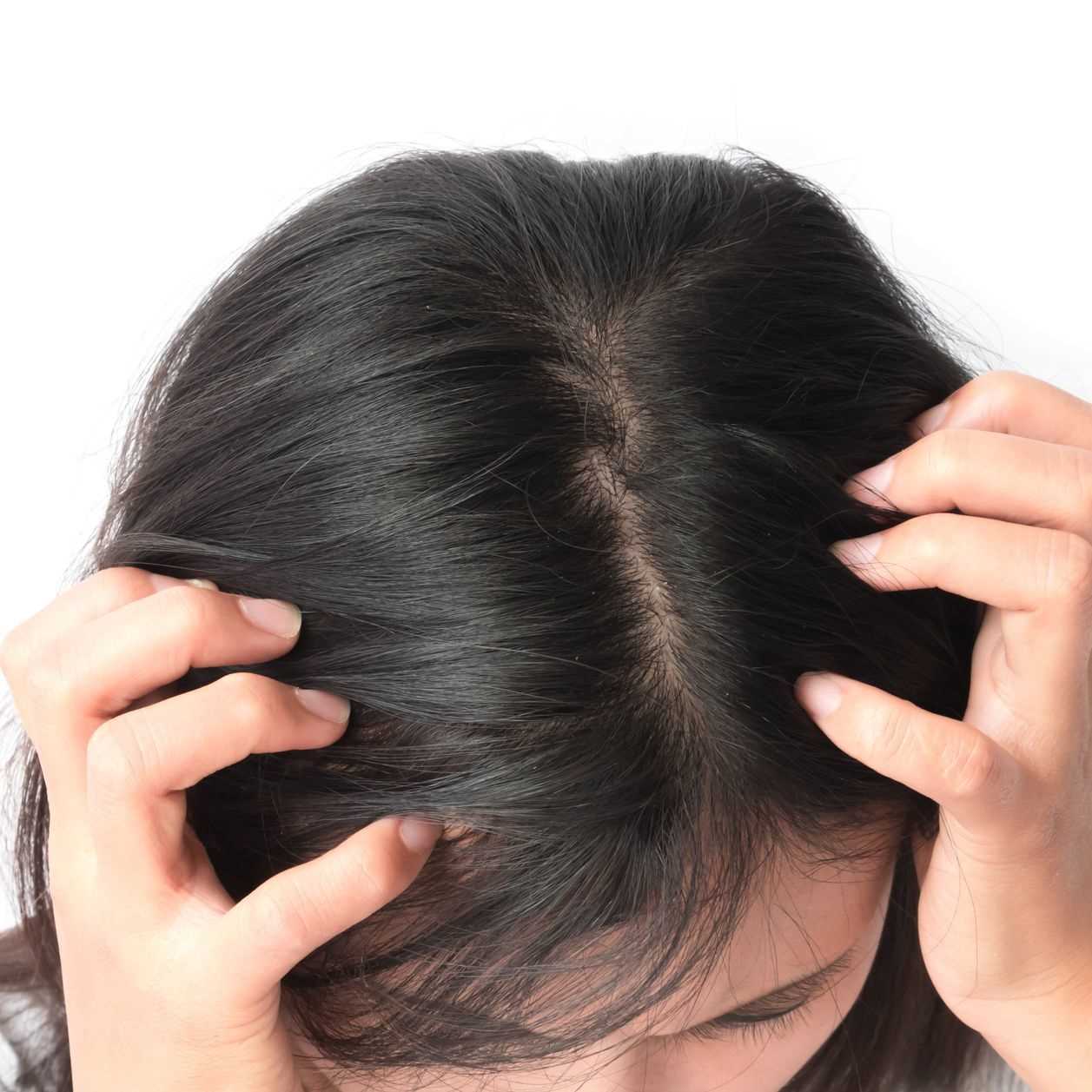How to recognize an irritated scalp? What are the causes ? What products should you use to soothe the itching on your skull? Here are some tips to apply on a daily basis.
You have itching on your skull, you feel tightness, you see redness on your skull, you have dandruff … These symptoms are the manifestation of an irritated scalp. This phenomenon can be linked to various factors. "In 90% of cases, this is due to seborrheic dermatitis ", says Nina Roos, dermatologist and author of the book "A skin in top form" at Solar editions. This inflammatory skin disease is characterized by the presence of red patches and mini dandruff. The use of unsuitable beauty treatments, pollution, stress or an unbalanced diet can also cause or aggravate this irritation. In any case, it's never too late to fix it.
But then what are the solutions to soothe an irritated scalp? Start by taking a walk in your bathroom. Check the cosmetic products you use. An overly aggressive shampoo can weaken your scalp if it already tends to be sensitive. "The ideal is to take a shampoo without perfume, without alcohol and without preservatives", specifies Nina Roos, dermatologist. Bet on a mild shampoo that soothes your hair such as the soothing Peony shampoo from Klorane for irritated scalps (product in stock at Doctipharma). Its users have unanimous opinion: this product calms itching and leaves hair soft and shiny. If you have dandruff, you can use an anti-itch dandruff shampoo like the organic anti-dandruff shampoo with aloe vera from Benessence (in stock at Amazon) or the Melaleuca shampoo, anti-dandruff for oily dandruff from René Furterer (in stock at 1001pharmacies). In any case, do not hesitate to alternate between different shampoos and to test different products and brands. "Not everyone is receptive to different products in the same way. With the same product, some people will be irritated and others will not", indicates the dermatologist before adding: "Some will prefer organic, others will not". Note that it is not mandatory to wash your hair every day. Two shampoos per week is more than enough.
Soothing masks for irritated skin
Good to know: an irritated scalp is linked to an insufficiency of sebum secreted by the sebaceous glands. So it needs to be deeply hydrated. The use of masks and products with natural ingredients are therefore recommended to nourish your hair. You can massage your scalp with an olive oil mask or with oils such as shea and avocado, known for their moisturizing properties. Kerastase, for its part, offers a soothing scrub that deeply cleanses and improves the shine of the hair. A product that is used alternately with a shampoo. Do not forget to rinse your hair mask with water, preferably not too hot, so as not to burn your skull. Some brands also offer leave-in care to soothe severe itching. This is particularly the case of Ducray who released the sensinol serum known for its long-lasting effect.
Recipes from grandmothers to fight against irritation
You can also bet on recipes from grandmothers. Do you want to concoct a 100% natural treatment? Nothing's easier. Take apple cider vinegar, mix it with three times its volume of water then apply the preparation with a cotton pad. That's it. The irritation subsides.
Very useful if you have dandruff, baking soda can also be your beauty ally. You can use it as a treatment, once a week. Apply a tablespoon of baking soda to wet hair in place of your shampoo. Massage your roots. Leave on for ten minutes before rinsing your hair thoroughly.
Finally, olive oil is also known to soothe irritated scalps. Apply it directly to your roots, massage, leave on for around thirty minutes before washing your hair with a mild shampoo. That's it.
Other useful tips to avoid further irritating your scalp: –
- do not scratch yourself at the risk of feeling itchy even more
- drink lots of water to properly hydrate your body
- eat a balanced diet for silky, healthy hair
- rinse properly the oils, masks, shampoos you use to calm irritations
- reduce the frequency of hair straighteners and dryers that dry the scalp as much as possible
- avoid tying your hair too often
- after sun exposure, use an after-sun product. Note that, like the skin of the body and face, the scalp tends to dehydrate when exposed to the sun's rays.
To read also on Auféminin:
6 tips to combat hair loss
The top 5 best tonics for hair
Pampering your scalp, the ultimate secret to beautiful hair
S.O.S my skin itches
